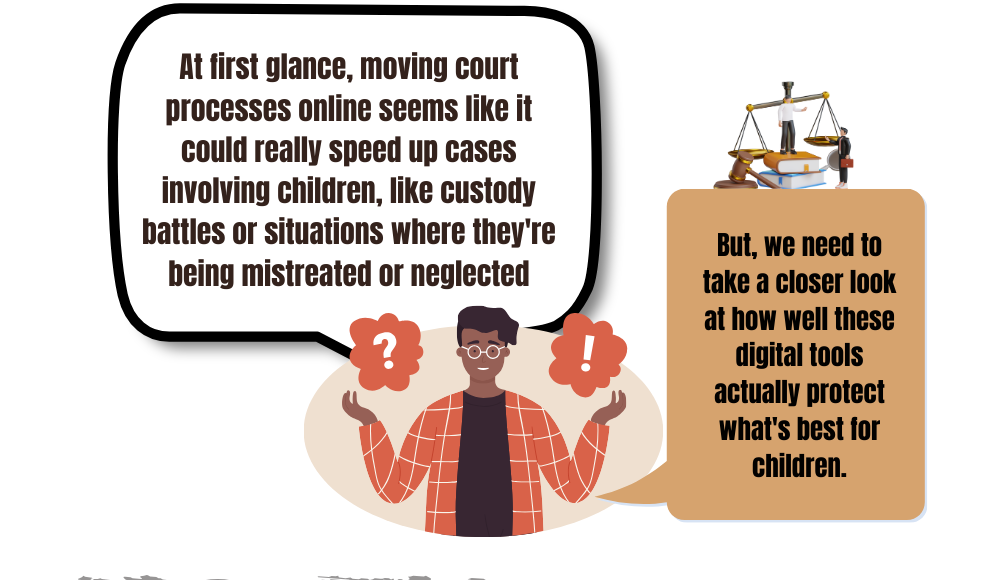
Chief Justice Martha Koome has made a big change by bringing Kenya’s courts into the digital age. Now, people can file documents online and use new tools like the Causelist Portal and Data Tracking Dashboard all across the country. This is great because it could make it easier for everyone, especially children, to get justice. But, it also makes us think about how this might affect people who are already struggling.
At first glance, moving court processes online seems like it could really speed up cases involving children, like custody battles or situations where they’re being mistreated or neglected. Being able to file papers online and check court schedules from afar could make things much easier for families, especially those who live far away from courthouses. But, we need to take a close look at how well these digital tools actually protect what’s best for children.
A big worry about bringing technology into child-related cases is that it might make existing inequalities even worse. In cities, where internet access is good and people are used to using computers, things might work smoothly with online filing and checking court schedules. But, in rural areas, where the internet isn’t reliable and people might not know much about using computers, they could get left out. This digital gap could make life even harder for children and families who are already struggling, making it tougher for them to get help from the law and support services.
Also, using digital platforms for legal proceedings can be worrying when it comes to how children feel and their rights. children who have to talk about what happened to them, or who saw something bad, might find it scary to do that through a computer screen. It’s hard to show all the little details of what happened while online, and that could mean important things get missed. Plus, not being able to talk face-to-face with judges and people who can help might make it tough for children to say what they need to and get the help and protection they deserve.
Furthermore, as we rely more on digital platforms for child-related cases, it’s important to protect children’ privacy and keep their information safe. This means being really careful with things like medical records and what they say in court, so their dignity and rights are respected. We also need to watch out for any biases in the computer systems we use, to make sure all children are treated fairly.
Even though using technology in courts can make things easier, we can’t forget about what’s best for children. Chief Justice Martha Koome wants to make sure that using computers helps children get justice instead of making things harder for them. It’s going to take teamwork between the courts, the government, groups that help children, and the companies that make the technology to make sure children are protected.
As Kenya’s courts get more digital, it’s really important to think about what’s best for children. We need to make sure everyone can use the technology, keep children’ information safe, and make sure they’re treated fairly in court. By doing this, we can use technology to make sure all children get the justice they deserve.
By Alice Njoki

Leave a Reply